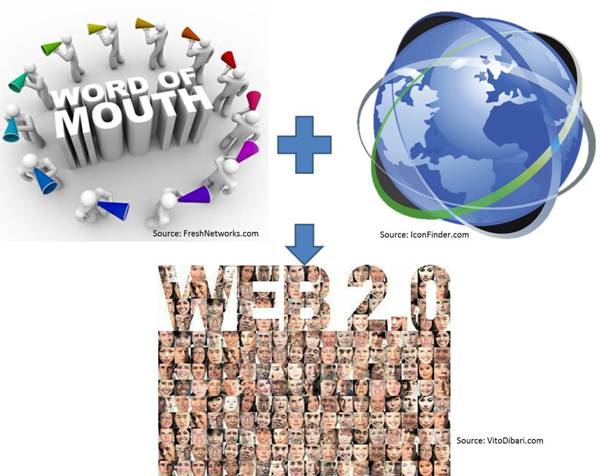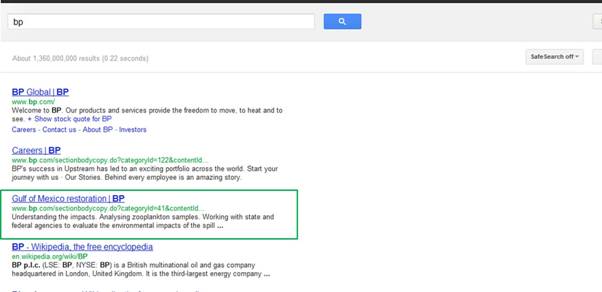Information in today’s age is a very powerful weapon. The World Wide Web ensures that this information is accessible to everyone everywhere. Search engines like Google and Bing help segregate all this information to give a consumer exactly what he or she requires. This is precisely where both the pros and cons are present!
With the advent of search engines and social platforms, information can be delivered to a specific set of consumers, allowing this valuable weapon help you grow your business through what we today call search engine optimization, search engine marketing, social media marketing, and content marketing, among others. However, there is flip side to this: Web 2.0 gives the classic “Word of Mouth” a whole new definition.
User Generated Content (UGC)
In today’s digital marketing landscape, user generated content (UGC) is considered to be an important decision-making factor apart from all other marketing efforts. The logic is very simple: A team of marketers simply cannot create enough information on limited channels to create visibility.
On the other hand, you incentivize the consumer and he, in return, will carry out all your publicity. Now, this was the ideal scenario. Looking at the exact opposite, a consumer who is very unhappy with an expensive product he bought through your company will also react in the very same way. You can also have competition doing the exact same thing (i.e. trying to portray your brand in a bad light) to capture your market.
There is nothing like a business incurring huge losses due to bad reviews on the Internet by a disgruntled ex-employee of the company. For many companies, its monetary value lies in the brand it has created over time. This value gets associated through all its stakeholders, esteemed employees, products, and services. Studies in marketing research show that one happy customer tells three friends, while one UNHAPPY customer tells 3,000. This is one trait, we humans are exceptionally good at.
What is the impact of all this online? Your brand gets a negative vote of trust which in turn drives down its ROI. In addition, negativity added on the Internet will always stay on the Internet.
Source: Reuters.com & Greysunwebdesign.com
Is there a way to tackle all this?
The solution in this dynamic consumer-driven marketing landscape is an evolving field called ORM (Online Reputation Management). Reputation Management has close ties with SEO and SMM in today’s digital marketing strategy. SEO and SMM create and capture user intent, while ORM helps convert this intent into a sale.
Reputation Management is essentially an art, wherein the ulterior motive is to promote and increase positivity for a brand/person on the SERPs usually for a small set of brand keywords that can have a massive influence in the buying cycle of a consumer.
This again needs to be done taking into consideration various factors of Google’s and various other search engines’ algorithmic changes. Another aspect of ORM is that while it helps eradicate negativity from the viewing glasses of a consumer, it additionally helps promote the brand along the way. So looking at it, ORM is not just a tool to be used in crisis situation, but as a long-term strategy for safeguarding the brand value of a company.
History is witness to encounters where proper reputation management has prevented major losses in business by showcasing all the various efforts being undertaken by the company.
In 2010, when the Deepwater Horizon oil spill occurred off the Gulf of Mexico, it was the focus of every major environmental agency to completely tarnish the reputation of British Petroleum.
Over time, BP has undertaken major efforts to protect and conserve the environment and all this has been effectively portrayed on the Web, and if you perform a search of “BP” on Google the results that appear will be quite evident of this:
BP has not stopped over here. It went ahead to sponsor the 2012 London Olympics with the message of protecting and reducing its impact on the environment. All of this as a proactive measure to ensure that its brand value stays protected over time.
Along with brands and companies, a lot of unverified negative chatter is posted online about businessmen, entrepreneurs, and celebrities alike. Tackling this issue requires another kind of strategy within ORM, where the focus is not limited to cleaning up SERPs but also moderating Google’s Auto-Suggest results and, at the same time, cleaning up Fake Social Profiles that keep on cropping up on major social platforms.
As digital marketing keeps on growing, user-generated content keeps on increasing. Websites thrive by cumulating this negative feedback and in turn promote it by citing consumer awareness (accountability of facts here is still unchartered territory). The advent of Web 2.0 has provided the necessity to have ORM as part of digital marketing; Web 3.0 (semantic web) will tend to take this to a whole new level.
So, unless ORM integrates into the entire digital marketing mainframe, going ahead with various marketing initiatives will prove to be a very costly affair.




